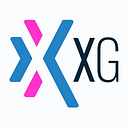The Outlook of Web3 Payments in 2024: A Global and South African Perspective
As we navigate through 2024, the financial domain is witnessing a revolution, primarily driven by the burgeoning sector of Web3 and stablecoins. This year is particularly pivotal as it signals a maturation phase for these digital assets, which are poised to redefine the realms of global and South African financial transactions.
Globally, the attraction of stablecoins lies in their unique proposition to blend cryptocurrency agility with the stability of traditional currencies. By being pegged to assets like the US dollar, stablecoins deliver the promise of cryptocurrencies — swift transactions, ironclad security, and borderless transfers — without the notorious price swings. With a robust global circulation, stablecoins are expected to further cement their position as the go-to medium for cross-border transactions and a fort against currency inflation.
The regulatory foresight of the South African Reserve Bank and its sandbox for fintech innovation lays a fertile ground for the flourishing of Web3 payments infrastructure. As stablecoins like USDT and USDC emerge as a shelter from the fluctuating Rand, they are anticipated to assume a central role in the nation’s transactional landscape. Mobile technology adoption further amplifies this transition, as an increasing number of consumers are adopting digital wallets for daily transactions.
Furthermore, South Africa’s quest for financial inclusivity aligns perfectly with the ethos of Web3. Mobile payment solutions, QR codes, and blockchain-driven solutions are being leveraged to democratize access to financial services. This wave of financial inclusivity heralds a new epoch of economic empowerment, opening the doors of the financial system to historically excluded groups.
Web3 technologies are remodelling financial services globally, as DeFi platforms enable users to lend, trade, and borrow freely from traditional financial gatekeepers. This transformation fosters efficiency and equity within the financial ecosystem. The surge in interest in CBDCs globally underscores the transformative potential of blockchain in the financial sector.
The journey ahead, while promising, has it’s fair challenges like regulatory compliance, cybersecurity, and consumer education. These areas need to be addressed to ensure that the global adoption of Web3 is broad-based and secure.
As we advance through 2024, it is evident that the integration of Web3 is not just a fleeting trend but a significant shift in the financial landscape. In South Africa and across the world, these digital assets are becoming indispensable components of economic activity. They represent a new dawn of financial inclusivity, efficiency, and security.
In this transformative era, Xion Global stands at the forefront, ready to seize the opportunities that 2024 brings. As a pivotal year for the company, Xion Global is set to leverage the power of Web3 payments infrastructure to deliver innovative payment solutions that cater to the evolving needs of consumers and businesses alike. With an eye on the global trends and a strong foothold in the South African market, Xion Global is well-positioned to make 2024 a landmark year in the records of global digital finance.
About Xion Global
Xion Global is a multi-chain web3 payments provider, offering a powerful suite of APIs and infrastructure to accept, send, and reward payments globally. Proudly recognized as Africa’s premier web3 payments provider, Xion is primed for imminent expansion, targeting collaboration with prominent network, payment and financial service providers boasting extensive user networks.
Start Accepting Crypto Payments
Follow Us on Social Media
Twitter | Telegram | Medium | Instagram | Facebook | Youtube | LinkedIn
Press Contacts
For more information about Xion Global contact GinjaNinja: Amanda Chikara, amanda@ginjaninja.co.za, +2711 568 4338
